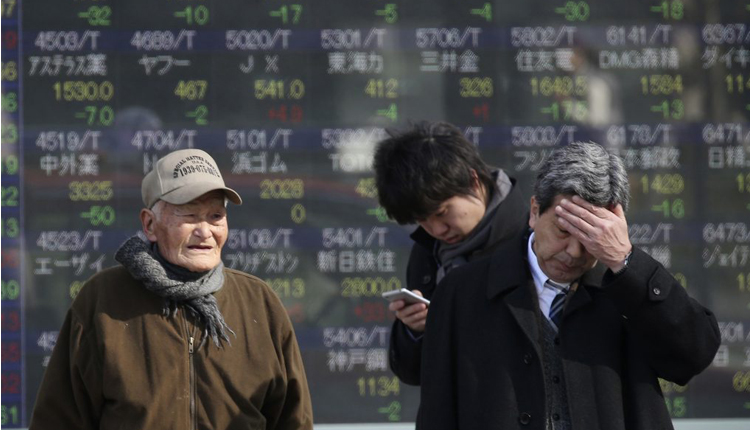Asian markets were tepid on Wednesday afternoon after U.S. Federal Reserve Chairman Jerome Powell tempered expectations for a potential interest rate cut.
The Nikkei 225 in Japan declined 0.62% in afternoon trade, with shares of index heavyweights Fast Retailing and Softbank Group slipping. The Topix index fell 0.63%.
In South Korea, the Kospi retraced earlier losses to trade roughly flat while Australia’s S&P/ASX 200 slipped slightly.
Mainland Chinese shares struggled for gains in their morning session. The Shanghai composite was down 0.23% while the Shenzhen composite was relatively flat. The Shenzhen component, meanwhile, rose fractionally. In Hong Kong, the Hang Seng index was little changed as it gained 0.05%.
Overnight stateside, Dow Jones Industrial Average ended about 179 points lower at 26,548.22 — its biggest one-day loss since May 31. The S&P 500 also closed approximately 0.95% lower at 2,917.38, while the Nasdaq Composite fell 1.51% to close at around 7,884.72.
The moves on Wall Street came as Powell said the U.S. central bank is assessing whether current economic uncertainties call for lower rates. Powell noted the Fed will take a wait-and-see approach given how rapid recent economic changes have been, but added the Fed is “insulated from short-term political interests. ”
One strategist said Powell’s comments had left the market “none the wiser in terms of whether or not the Fed will look to embark on a new easing cycle at the end of July.”
“While the word ‘patience’ was dropped in the (Federal Open Market Committee) statement, it seems that Powell is still on a wait and see mode noting that much will depend on the incoming data and specifically the near-term risks (which we take to mean upcoming trade discussions),” Rodrigo Catril, senior foreign exchange strategist at National Australia Bank, wrote in a note.
Meanwhile, investors looked toward developments on the U.S.-China trade front, with presidents Donald Trump and Xi Jinping set to meet at the G-20 summit later this week.
“We should at least end up in a situation where the U.S. and China are at least talking to each other,” Manpreet Gill, head of fixed income, currencies and commodities investment strategy at Standard Chartered Private Bank, told CNBC’s “Squawk Box” on Wednesday.
On the subject of a potential deal being reached, Gill said it “might be a stretch too far” given “how far apart” the two parties are at present.
“A resumption of dialogue, resumption to at least start talking about some of the more difficult issues, we think will be enough for markets to at least … take this outcome positively,” he said.
The U.S. dollar index, which tracks the greenback against a basket of its peers, was at 96.291 after rising from levels below 96.0 yesterday.
The Japanese yen traded at 107.42 against the dollar after touching below 107.1 in the previous session. The Australian dollar changed hands at $0.6962, continuing to move upward from levels below $0.685 seen last week.
Oil prices jumped in the afternoon of Asian trading hours, as the international benchmark Brent crude futures contract surged 1.49% to $66.02 per barrel and U.S. crude futures soared 1.95% to $58.96 per barrel.
The moves come as U.S.-Iran relations remain tense following the announcement of fresh tariffs by Washington on Tehran after the latter downed an unmanned American drone last week.
Source: Reuters
